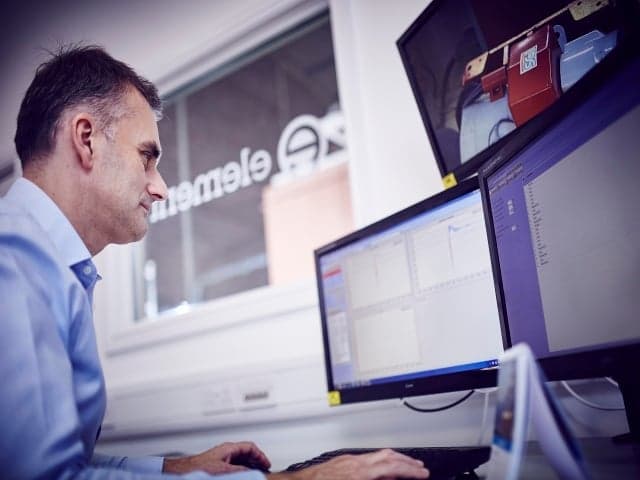Understanding the requirements to gain Global Market Access (GMA)
This article by Richard White provides an overview of Global Market Access (GMA), detailing the testing, certification, and approval processes required for products to be sold internationally.
What is Global Market Access?
Global market access (GMA) describes the process of testing, certification, and approvals that enables a product to be sold in countries of choice. For manufacturers, a GMA project often involves a list of countries with different rules and regulations that need to be met to sell a product. This can be a time-consuming and frustrating exercise that frequently ends up delaying a product from reaching new markets.
Most electrical or electronic products will require a mix of radio, EMC, and safety testing to enable them to be sold globally across multiple markets. However, each country/region will often have its distinct regulations and certification requirements. When it comes to radio, for example, Brazil has ANATEL certification, Australia has RCM and China has SRRC. There can also be additional product compliance requirements in each country, such as specific safety, EMC, and RoHS certification.
Preparing for the UKCA mark to become mandatory
Until recently, UKCA marking was due to be a mandatory requirement for all new radio equipment placed on the market from 1st January 2023. However, in November the UK government announced an extension to the transition period. UKCA is now mandatory for radio equipment from 1st January 2025. Either CE or UKCA marking can be used until 31st December 2024.
In addition to referring to the new UKCA regulations on the UK declaration of conformity, manufacturers must also refer to the UK’s list of designated standards where appropriate. While there is currently little difference between the two, there will likely be greater divergence in the future.
Keeping up to date with global changes in testing and certification requirements
If a manufacturer is looking to access multiple global markets, it is important to keep up to date with the changes in radio, EMC, and safety certification and regulatory requirements that are regularly evolving.
EMC is not as heavily regulated as radio and is not always mandatory. It can apply to both radio and non-radio devices. Manufacturers should always ensure a device is safe, however, third-party safety certification is not always required for all device types. The EMC/Safety testing and certification requirements often depend on the type of device sold (for example, household devices often need third-party safety certification). It is also worth noting that the HS code of the device may also be required.
Examples of recent changes include:
• Chile: Approval is no longer needed for analog phones in Chile.
• Egypt: Egypt requires additional information for products made in China and India, including a VOC certificate that is only available from a specific laboratory in China.
• Indonesia now requires EMC testing of radio products.
• Mexico: All Mexico NOM (safety) certificates must list an HS code (a harmonized systems code relevant to customs).
• Singapore safety certification was renamed from SPRING to Enterprise Singapore.
• Vietnam: Radio products under 60mW don’t require approval in Vietnam – while not a recent change, it’s worth noting as it’s rare for devices below a certain power not to need approval.
• Many African countries are now coming to the fore with their own regulations and ability to conduct the necessary testing locally. Ghana, for example, is implementing an in-country testing program, and Somalia is in the process of establishing its own certification procedure.
Understanding the different global approaches to certification
When looking at the requirements from a broader global perspective, it is safe to assume that no two countries are the same. Nonetheless, most countries can usually be grouped into broadly taking one of three overall approaches:
• Countries that follow similar requirements to the UK/EU.
• Countries that accept third-party accredited test data.
• Countries that require testing to be carried out locally.
Countries that follow similar testing and certification requirements to the UK/EU
The UK/EU requires manufacturers to declare compliance with the relevant regulation/directive. To do this, manufacturers usually carry out testing to designated/harmonized standards (if one is available). For radio equipment, if a designated/harmonized radio test standard is unavailable, the manufacturer should use a UK-approved body or an EU Notified Body. Testing does not need to be accredited in Europe; however, using an accredited test laboratory is beneficial as most countries outside of the EU require accredited testing.
As an IECEE certification body and a certification body test lab (CBTL), Element is also able to perform all the necessary safety CB testing and certification of products for many markets. The IECEE CB Scheme is a multilateral agreement and certification system based on IEC International Standards that can be readily accessed and accepted in international markets. A key aim of the scheme is to allow manufacturers to gain access to international markets without the need for time-consuming and costly, duplicate, or additional testing in each country.
Many countries are members of the CB scheme including China, Japan, and the US. However, obtaining CB certification for a product doesn't always mean that the product is instantly ready for shipping. For example, a device that's going to be used in the workplace in the US will often also require NRTL certification, which means slightly different testing, as well as factory, audits either two or four times a year, the cost of which is important to consider. In China, some products require CCC certification which again involves additional testing and factory inspection.
Obtaining certification for countries that accept third-party accredited test data
Many other countries will accept third-party accredited test data. For these countries, Element’s GMA team can use Element’s UKAS-accredited test reports to obtain the relevant certification on the manufacturer’s behalf. Countries that take this approach and will accept EU test reports include India, Malaysia, the Philippines, and South Africa. In addition, many South American countries, such as Chile and Paraguay, will accept FCC test reports.
Countries that require local testing
Countries that require the product to be tested at a local laboratory include Brazil, Indonesia, Taiwan, South Korea, and Mexico.
Overseas product testing during any certification project can be a complex and time-consuming burden for manufacturers. The manufacturer will need to identify the types of certifications required for their product, source a local accredited laboratory to carry out the testing, arrange for the test samples to be shipped, ensure all the necessary documents are prepared in the required local language, and provide an example label. Once testing has been completed, the test reports and documents must be submitted to the regulator and only once a certificate has been issued, can the device be labeled.
The time taken to carry out this process can vary enormously from country to country. Delays can happen at any point on the approval journey, starting with the challenge of getting a non-approved sample into the country for testing. If there are also additional certification requirements, such as the PSE safety certification in Japan, or if the testing is required to be carried out at government-owned test laboratories, it can become a lengthy process.
Element’s GMA approach to gaining global testing and certification
Element can arrange for any additional mandatory overseas testing through its 200 laboratories worldwide or an Element-approved local test house. Element will manage the entire process on the manufacturer’s behalf, including all the administrative and legal challenges, from arranging the shipment of samples and advice on test requirements to advising on local regulations and assisting with various technical and regulatory issues.
Element can also provide the manufacturer’s local representative where required. For some countries, having an in-country representative is a legal requirement for traceability purposes. This means that a local contact should take responsibility for being the ongoing designated contact in that country with whom the regulator can speak if there are any problems, such as radio interference issues, with the device.
Element’s global network means that its GMA engineers based in Europe and Asia can help to circumnavigate any potential time zone issues and avoid any language barriers. The GMA team’s expert knowledge of the rules and regulations in each country ensures any upcoming changes in a country’s legal requirements are also fully integrated into the program.
The team provides advice on everything from labeling and importer obligations to documentation language requirements and technical translation services. When required, Element will also liaise directly with the relevant government regulators on behalf of the manufacturer. The team will ensure all future requirements are fully considered, such as certification expiry dates and renewal process timelines, which can vary significantly from country to country.
Why Element?
In essence, Element’s GMA team works with manufacturers using a partnership-based approach, ideally at the R&D stage, to ensure that testing and certification are achieved as quickly and as cost-effectively as possible. This not only helps to significantly reduce a product’s time to market but allows the manufacturer to concentrate on their core business.
As well as being UKAS accredited to ISO/IEC 17025:2017, Element is a Notified Body for the European Radio Equipment, EMC & ATEX Directives, an Approved Body for the UK Radio Equipment Regulation, EMC Regulation and Potentially Explosive Atmospheres Regulation, a Telecommunication Certification Body (TCB) for the US, a Foreign Certification Body (FCB) for Canada and a Conformity Assessment Body (CAB) for Japan. Element is also a certification body under the IECEE CB Scheme.
For more information on how Element can help you with preparing your products and devices for specific markets globally, please contact a member of the Global Market Access service team.

Global Market Access (GMA) Services
Accelerate international product certification with Element's Global Market Access Services. Navigate complex regulations, reduce testing time & get to market faster.

IECEE CB Scheme Testing and Certification
Element provides manufacturers with simplified and streamlined testing and certification under the IECEE CB Scheme, ensuring fast and cost-effective global market access across more than 50 countries. With over 20 years of experience and state-of-the-art laboratories, we help your products meet the highest international safety standards.

UKCA Marking – Testing, Certification, and Guidance
Element provides UKCA marking, testing, and certification services to help manufacturers navigate UK regulatory changes. We streamline compliance, ensuring market access and seamless transitions from CE marking.
Global Market Access (GMA), including Brexit and UKCA
Watch Richard White as he describes the Global Market Access (GMA) testing and certification process that enables a product to be sold in countries of choice.


